Uncategorized
Paul Nwosu writes on- “Soludo’s Bank Consolidation Revolution Revisited”

History was writ large as the book written by Dr. Ray Echebiri entitled _The Power of One Man: How the Soludo-Engineered Consolidation Transformed Nigerian Banks to Global Players_ was unveiled at Eko Hotels & Suites, Victoria Island, Lagos on Saturday, July 6.
The grand occasion marked exactly 20 years of the revolutionary banking reforms that culminated in the emergence of 25 banks that beefed up their capital base to a minimum of N25 billion under the watch of the then Central Bank of Nigeria (CBN) Governor, Prof Charles Chukwuma Soludo, CFR.
The Nigerian President at the time who gave Soludo the backing to undertake the landmark change, Chief Olusegun Obasanjo, was represented at the launch by the former Governor of Cross River State, Donald Duke.
The title of the book _The Power of One Man_ is steeped in the Igbo lore of “Ike-otu-onye”. It informs that the power of one determined man can bring about profound change in the society. This does not discountenance the need for a team, but then the team needs a leader, and Soludo provided the needed leadership and drive.
In the review of _The Power of One Man,_ the Senior Vice-Chairman and Editor-in-Chief of Leadership Newspapers Group, Azu Ishiekwene makes the case that the 2004 banking consolidation should serve as a historical record needed to guide the present time and shape the future. Ishiekwene avers that Nigeria can ill-afford to repeat past mistakes in this day and age “just as we forgot the era of failed banks, which landed the country in serious trouble” before the 2004 banking consolidation.
_The Power of One Man_ should stand as a warning of the shape of dangers around. Ishiekwene states powerfully in praise of Soludo’s courage thusly: “Sometimes, to succeed and to succeed outstandingly, one must be prepared to blow against the wind”.
Soludo, true to his typical humble being, states that the day belongs to the writer of the book, Dr Ray Echebiri, and not to him the maker of the banking revolution, Prof Soludo.
The banking revolution that has come to be hailed as “Soludo Shuffle” in which 89 “how-for-do” banks were reduced to 25 global banking institutions was akin to a godsend.
Before the coming of Soludo, Nigerian banks had been reduced to the laughing-stock of comedians who joked of how Nigerians were reduced to carrying mats to sleep in banks because of delays.
The inimitable comic actor, Lomaji Ugorji of “Icheoku” fame, was fond of asking “Where is my Tally Number?” as a mockery of the ill-assorted numbers then assigned to banks’ customers.
The impact and import of Soludo’s consolidation and reform had to happen to address the weak capital base, digitization, loan capacity, risks, global perception of the banks etc.
Following his appointment to the CBN post in June 2004 by President Obasanjo, Soludo blazed a trail that left his fellow countrymen and women almost breathless. Keeping pace with Soludo became well-nigh impossible. Barely a month in office, he met the Bankers Committee and promptly released a 13-point agenda designed to turn around the financial sector of the country. The feather on the crown was the banking consolidation initiative of Soludo.
Before consolidation, all of the banks in existence in Nigeria put together could not match one South African bank. The recapitalization initiative led to the making of 25 big banks out of the 89 banks previously in existence in the country, and Soludo was dubbed “Mr Consolidation”.
Through the efforts of Soludo, Nigerian banks have been able to go global. The banks opened up offshore branches, thus becoming true global players in the financial world. New York, Paris, London, and sundry capitals of African countries now count Nigerian banks and bankers amongst the top players.
Soludo courageously made all the banks to adopt a common year-end strategy, thus stopping the hanky-panky stratagem of banks cooking their books. He stressed that the banks must undertake a strict observance of sound corporate governance. He upped the ante in macroeconomic stability, and through his efforts foreign investments found pride of place in Nigeria.
His work in the microfinance sector was also nothing short of revolutionary. Some 800-odd microfinance houses were granted licences, spreading across the country thus: Southwest 40.5 percent, Southeast 21.2 percent, South-south 14.3 percent, North-central 12.9 percent, Northwest 6.9 percent, Northeast 4.1 percent. The microfinance houses were meant to carter to the needs of petty traders, transporters, barbers, local farmers etc.
Soludo breathed fresh life into the Nigerian Security Printing and Minting (NSPM) Company, and he made ATMs a fact of daily Nigerian life.
A hands-on leader, he prefers to show the way through personal example. As Chinua Achebe wrote in _The Trouble with Nigeria_, “The Nigerian problem is the unwillingness or inability of its leaders to rise to the responsibility, to the challenge of personal example which are the hallmarks of true leadership”.
Soludo preaches the gospel of the old school that sees honesty as the best policy. He remains unafraid to jump into terrains where angels fear to tread. He dared all dangers in the banking consolidation struggle, as he reveals: “At a personal level, undertaking the banking revolution in Nigeria came with 19 written threats to me and my family, including physical attacks.”
It’s noteworthy that Soludo in his epochal lecture entitled “The Purpose and Price of Disruptive Change,” had stated: “Every society that has prospered and endured has been led by men and women who have discovered a higher purpose beyond self. For such people, politics is a vocation for selfless service and not a job. Such people are driven by a single purpose to make a difference and leave legacies. Whenever and wherever competence is augmented with character and developmental ideology, the society wins.”
To demonstrate his deep appreciation of Soludo’s extraordinary contribution to the banking sector and by extention, governance, President Umaru Musa Yar’Adua who did not renew Soludo’s tenure ended up officially congratulating “Mr. Consolidation” via a letter written with presidential seal: “As your tenure as Governor of the Central Bank of Nigeria comes to a glorious end, I write on behalf of the Government and people of Nigeria to place on record our debt of gratitude to you for your dedicated service and uncommon sense of duty over the past five years. I am confident that your worthy antecedents in the CBN and in prior appointments in the service of our nation remain sources of inspiration to an entire generation. As I wish you even more astounding successes in the years ahead, it is my fervent hope that you will readily avail us of your distinguished service when the need arises in the future. Yours sincerely, Umaru Musa Yar’Adua.”
_The Power of One Man: How the Soludo-Engineered Consolidation Transformed Nigerian Banks to Global Players_ is a penetrating testament to Soludo’s solution to Nigeria’s banking quagmire. July 6 every year deserves to be marked as the day of the banking revolution.
PAUL NWOSU is the Commissioner for Information, Anambra State
News
Keyamo becomes Honorary Fellow, Nigerian Institute of Architects
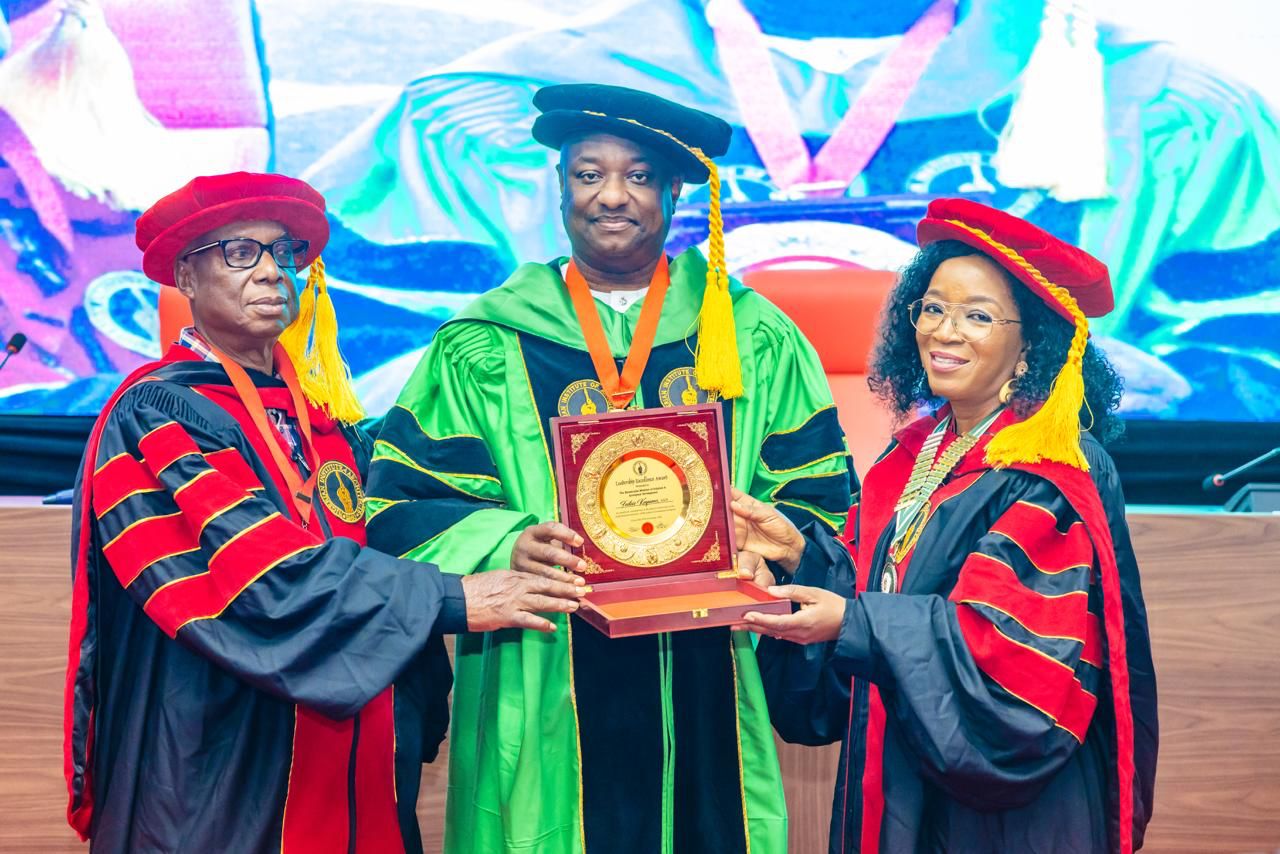
By Bonaventure Phillips Melah
Festus Keyamo, SAN, Nigeria’s Minister of Aviation and Aerospace Development, has been formally inducted into the revered league of Honorary Fellows of the Nigerian Institute of Architects (NIA)—a distinguished circle that has, over the past six decades, admitted only a select group of eminent Nigerians.
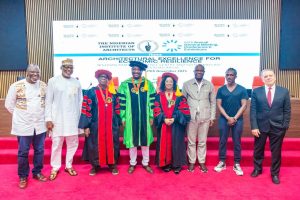
The prestigious honour, conferred by the Institute, places the Aviation Minister among an elite class that includes former Presidents; Chief Olusegun Aremu Obasanjo and Dr. Goodluck Ebele Jonathan, the Speaker of the House of Representatives, and the Governor of Niger State, among other national figures recognised for their exceptional contributions to nation-building. With this induction, Keyamo becomes only the 16th Honorary Fellow in the 60-year history of the NIA.
In a citation, the Nigerian Institute of Architects described Keyamo’s induction as a testament to his national impact, visionary leadership, and enduring commitment to infrastructural excellence.
In his remarks at the conferment ceremony, the Dean of the College of Fellows, who represented the NIA President, emphasised that the Honorary Fellowship is reserved strictly for individuals who have demonstrated uncommon excellence, service, and achievement. He praised Keyamo for his transformative role in modernising Nigeria’s aviation landscape—an achievement that has significantly enhanced the architectural and infrastructural fabric of the sector.
He noted that the Minister’s visionary leadership has catalysed the renewal of airport infrastructure, promoted world-class design standards, and strengthened the interface between aviation development and national architecture.
“His efforts in repositioning the aviation industry reflect a deep understanding of functional design, structural aesthetics, and sustainable infrastructure—principles that lie at the heart of architecture,” the Dean said.
In his acceptance speech, the Honourable Minister expressed profound gratitude to the Institute for the rare honour, describing it as both humbling and inspiring. He highlighted the importance of cultural identity in national development, stressing that architecture and urban planning must reflect the soul of the people.
“In our urban development, we must integrate our culture into our town planning,” he stated. “Our spaces must tell our stories. Our buildings must reflect who we are. This is the essence of nationhood, and it is a philosophy I intend to continually champion, especially as we reimagine Nigeria’s aviation ecosystem.”
A statement by Tunde Moshood,
Special Adviser On Media and Communications to the Honourable Minister of Aviation and Aerospace Development, had it that Keyamo reaffirmed the Ministry’s commitment to developing aviation infrastructure that embodies innovation, resilience, and cultural relevance while supporting Nigeria’s broader economic transformation.
Uncategorized
Russia passes law

News
Why we honoured Prof. Anosike, NiMet DG- NANS
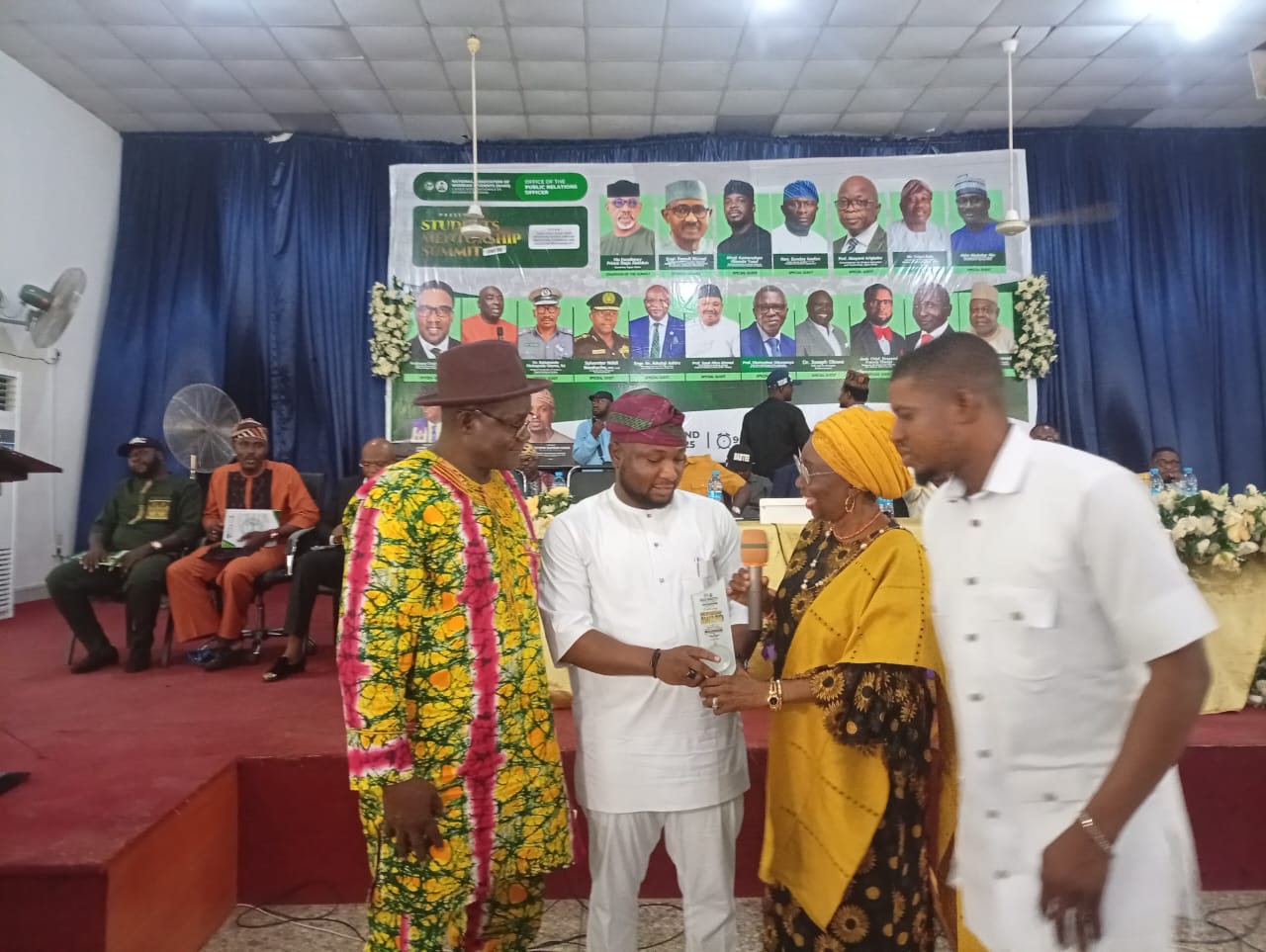
The National Association of Nigerian Students (NANS) has explained why it recently honoured the Director General/CEO, of the Nigerian Metrological Agency (NiMet), Prof. Charles Anosike with its Mentorship Award of Excellence.
Anosike was given the award on October 23rd at the Olabisi Onabanjo University Ago Iwoyin, Ogun State during a youth mentorship conference organized by NANS.
In a statement issued Monday, October 28, 2025, NANS said the NiMet DG was honoured for consistently demonstrating exemplary leadership, humility, and generational impact in his service to Nigeria’s youth and emerging entrepreneurs.
Titled ‘Statement by the National Association of Nigerian Students (NANS) on the Presentation of Mentorship Award to the Director General of NiMet,’ it stated that the mentorship Anosike has provided to thousands of young Nigerians has paved the way for fresh ideas, empowered individuals, and anchored many on the path of excellence.
According to the statement which was signed by Comrade Adeyemi Samson, NANS National Public Relations Officer- “Young people who have had the privilege of working with him testify to his clear-sighted guidance, rare simplicity of approach, and genuine concern for their personal and professional development. His readiness to extend a helping hand, provide encouragement, and share insights has made a lasting difference.
“In his capacity as a distinguished professor, a man of dignity and repute, and a public servant committed to transformation, Professor Anosike embodies the very essence of mentorship that NANS strives to promote among Nigerian students and youths.
“By this award, NANS affirms its deep respect for Professor Anosike’s consistent efforts in nation-building, youth capacity development, and entrepreneurship support. We are delighted to honor him today and look forward to the many further achievements that will follow from his mentorship and service.
-

 News2 years ago
News2 years agoBreaking: Tinubu’s authentic ministerial nominees
-

 News9 months ago
News9 months agoSenate to speed up conclusion of Nigeria Forest Security Service Bill
-
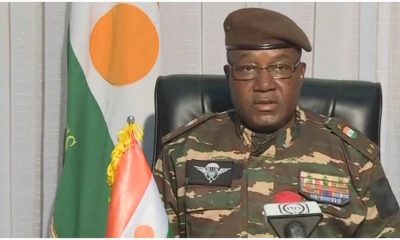
 News2 years ago
News2 years ago“Anytime we want to kill terrorists, President would ask us to take permission from France but they were killing our soldiers-” Niger Republic coup leader
-
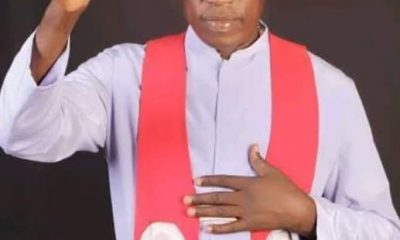
 News2 years ago
News2 years ago“I’m leaving the Catholic church because Bishop Onah is oppressing me,” says Okunerere
-

 News2 years ago
News2 years agoRadio Nigeria’s veteran broadcaster Kelvin Ugwu dies three months after retirement from service
-
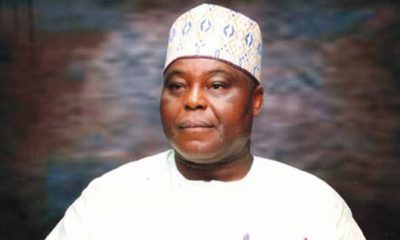
 News2 years ago
News2 years agoDokpesi and the Gazebo Mystique
-

 News2 years ago
News2 years agoTsunami: Tinubu orders dissolution of managements, boards of MDAs, to sack all Buhari’s political appointees
-

 News2 years ago
News2 years agoPersons against Allagoa’s reforms behind protests at NSITF
